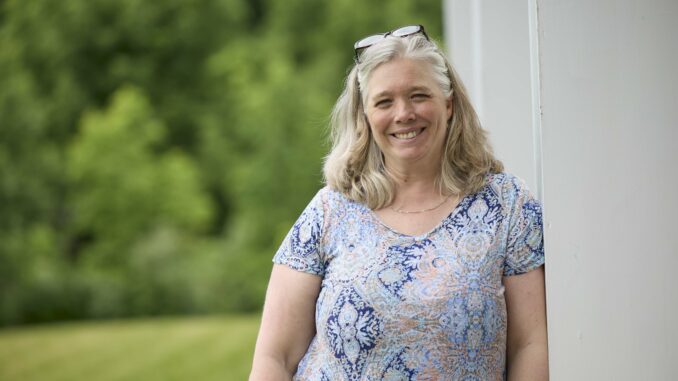
COHN is working to create healthy smiles throughout the state
Maine is in the midst of a dental care crisis. With the pandemic exacerbating ongoing workforce shortages and many adults just gaining dental benefits for the first time, thousands of patients are seeking care in an overwhelmed care delivery system. One of the most affected groups is children who do not have an existing “dental home,” meaning a dental office where they are a regular patient. Families are facing wait lists exceeding a year and an agonizing maze of red tape that stands in the way of getting both the emergency and preventive care they need.
The Children’s Oral Health Network (COHN) of Maine is working to put care within reach. Founded in 2017 with a long-term commitment of funding from the Sadie and Harry Davis Foundation, COHN is made up of over a hundred organizations and individuals working on collaborative action towards a shared vision: a Maine where all children grow up free from preventable dental disease.
“We’ve got to really think about what people need, how can they access it, how our system can be built in a way that it can actually reach them — reach all kinds of people in all walks of life — with what they need to protect their oral health,” says Becca Matusovich, COHN executive director.
“We’ve got to really think about what people need, how can they access it, how our system can be built in a way that it can actually reach them …”
Becca Matusovich, Executive director, Children’s Oral Health Network
A community of care
As a network, COHN is able to reach more communities and work toward proactive systemic changes rather than uncoordinated reactive responses from a single organization. Member Amber Lombardi, independent practice dental hygienist and executive director of Mainely Teeth, offers care through several brick-and-mortar locations as well as a 28-foot mobile dental clinic that travels to schools, primary care offices, churches, housing developments and more in 14 out of Maine’s 16 counties. She says that without COHN’s support, she wouldn’t be able to do what she does.
“The network functions as a built-in support system and if they can’t support you, they find somebody who can,” Lombardi says. “When I’m sitting in a room with everybody at once and everybody has the same end goal — which is to make people healthy and decrease or eradicate dental disease — when you’re all there for that reason, it is amazing what you can do with a group of people with the same mindset.”
A lack of providers
For patients with MaineCare — nearly 50% of residents under the age of 20 — finding a provider that accepts their insurance is daunting: Between 2019 and 2023, the number of dental providers who accepted MaineCare dropped 27% from 216 to 160.
“The state as a whole is suffering a dental workforce shortage and if you have MaineCare, or you don’t have dental insurance, or you don’t make a living wage, there are very few options for you,” Matusovich explains. “There are nonprofit dental centers, federally qualified health centers, and mobile programs that are out there doing amazing work, but there aren’t enough of them to serve the number of people who need dental care.”
Lombardi’s Mainely Teeth is one of those programs. Even with 90 locations and a mobile clinic, she still has a 2,200 person waitlist and ten schools waiting to participate. Next fall, she’s bringing on 1,600 new patients from schools alone.
Putting care where kids are
One of COHN’s efforts making dental care more accessible is putting it where children already are. Preventive care like exams, cleanings, X-rays and fluoride varnishes can be done by hygienists like Lombardi in pediatrician offices and schools. One hygienist can provide care for a number of children in one visit.
“Parents are getting most kids to their Well Child visits. We know the kids are there and it’s a great place to address all of their preventative health care needs. Oral health is part of your overall health and affects every other system in your body. It just makes sense that it should be part of your Well Child care,” Matusovich says. “As they get older, it makes sense to catch them in school because that’s where they are, it doesn’t require parents to take time off from work, it doesn’t require taking them out of school to drive them potentially several hours. It’s much more accessible.”
Systemic changes
Part of COHN’s mission is to address long-term solutions and systemic changes, including legislative policies. As a member, Lombardi says through the network’s support, she’s been able to contribute to state-wide changes in how patients can access care.
“I’ve made a great partnership with them [COHN] because I’m someone who aspires to do policy change and I have interests that reach beyond Mainely Teeth. I have interests that want to affect the overall oral health landscape in our state and they provide me with support in those interests and help me use my voice better.”
Policy efforts for future legislative sessions focus on building capacity for the State of Maine to address oral health as the public health crisis it is, and broadening who can provide oral health services — in more diverse settings, like the community-based care Mainely Teeth provides.
Educating doctors
While embedding dental care providers into schools and primary care teams is a good start, COHN has taken it a step further, partnering with the University of New England and University of Maine Augusta to support the integration of oral health and medical education, as well as innovative models of community-based and minimally invasive care.
“In the hands of a primary care provider, those tools are much more accessible to many more kids,” Matusovich says. “I don’t want to underestimate how hard it is to change the systems to deliver these services at a much larger scale, but delivering the services themselves is a relatively small lift for the amount of payoff that we’d get from it for society.”
To find out more about the work being done in Maine by Children’s Oral Health Network, visit www.mainecohn.org.



